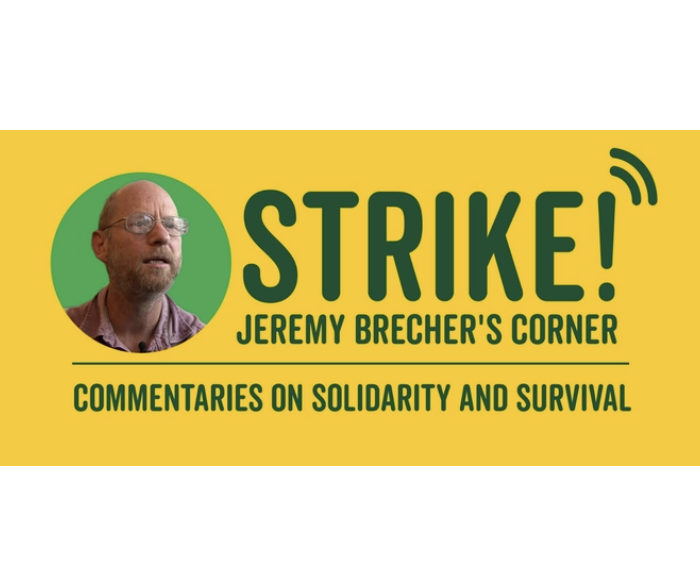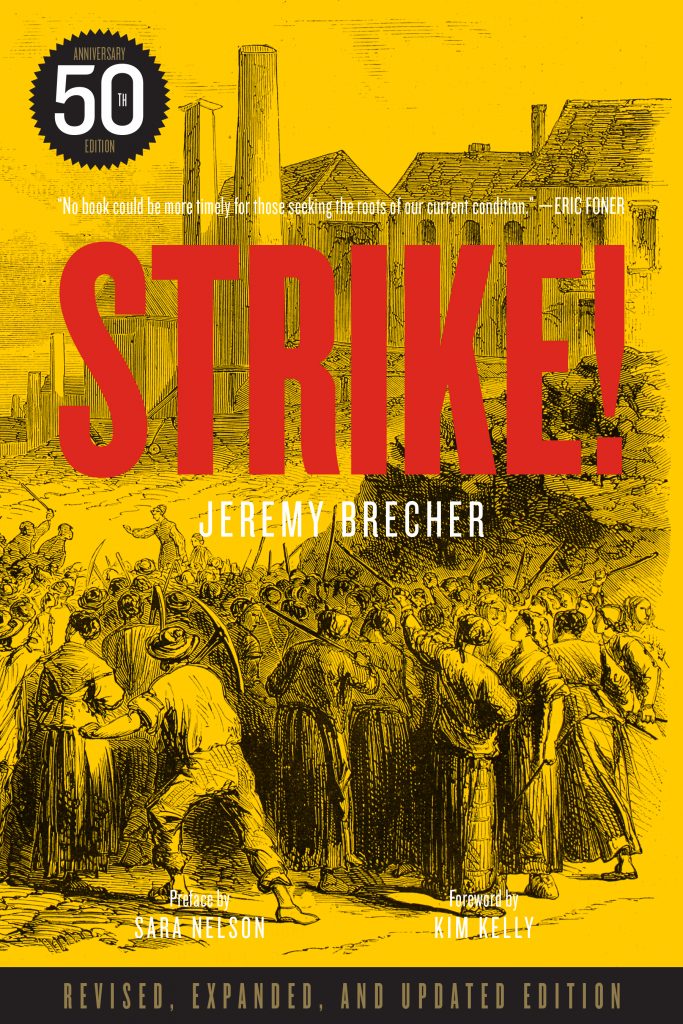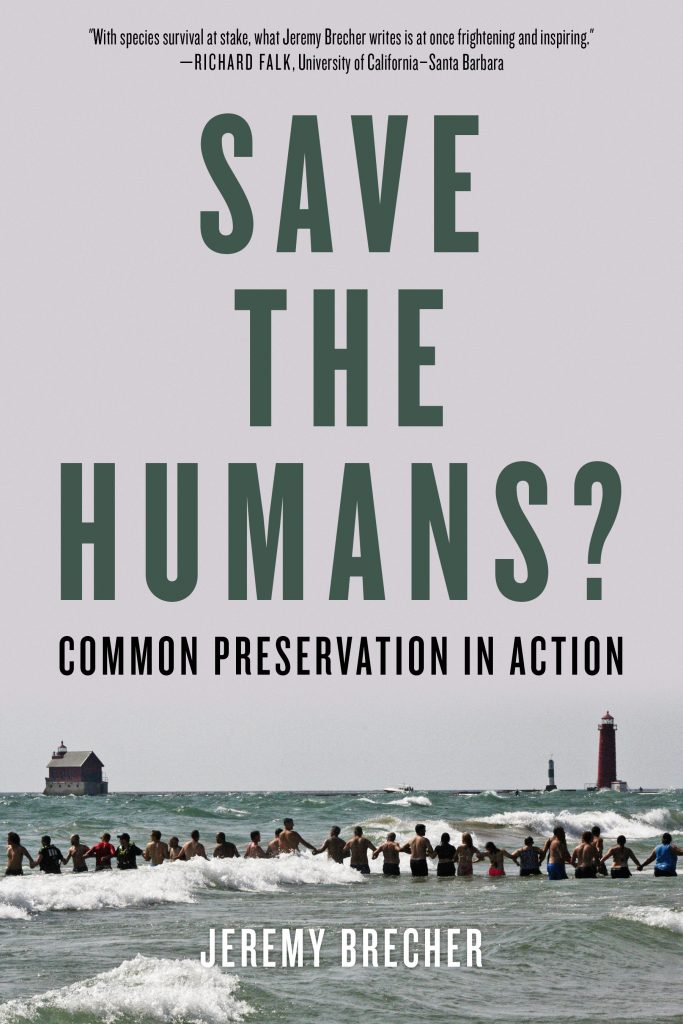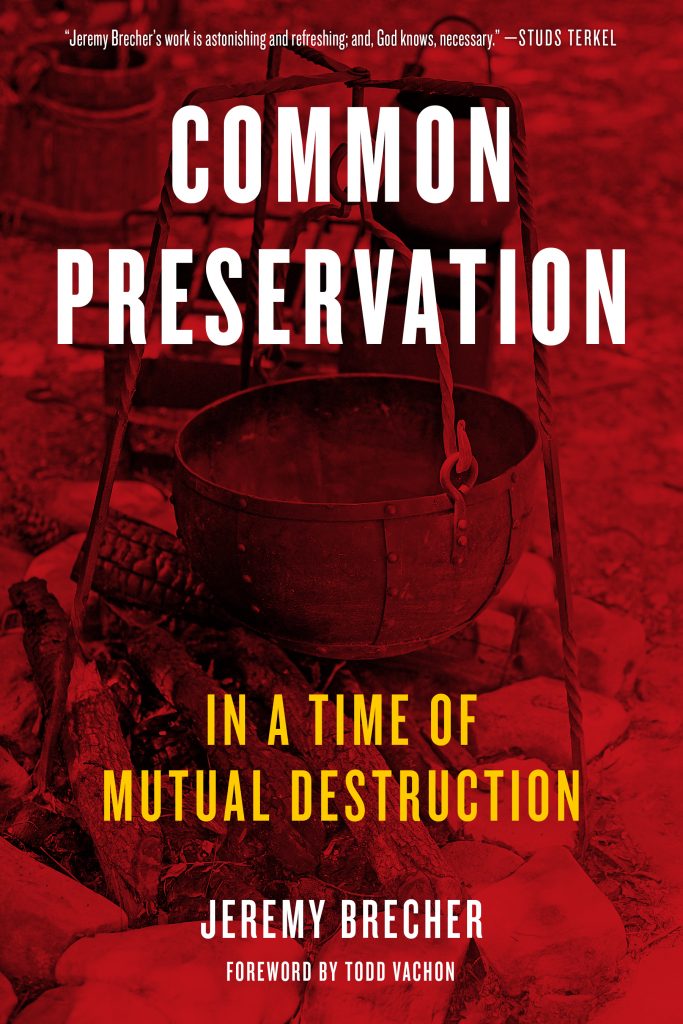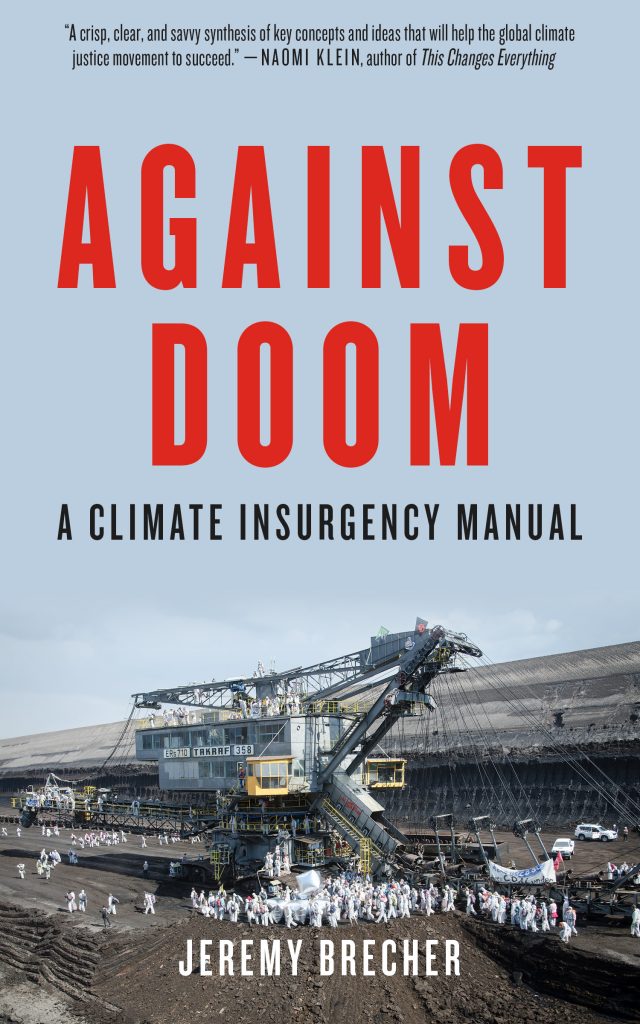By Jeremy Brecher, Senior Strategic Advisor, LNS Co-Founder
While protecting the climate will require millions of jobs, there is no guarantee that those jobs will be good jobs. The local and state Green New Deals that have sprung up around the country are not only creating new jobs, they are also addressing low wages, lack of opportunities for training and advancement, de facto exclusion from access to good jobs, and other dimensions of job quality. They are making it easier for workers to organize. And some of them are moving toward providing a “jobs guarantee.” Taken together, these initiatives are laying the foundations for a transformation of the world of work.
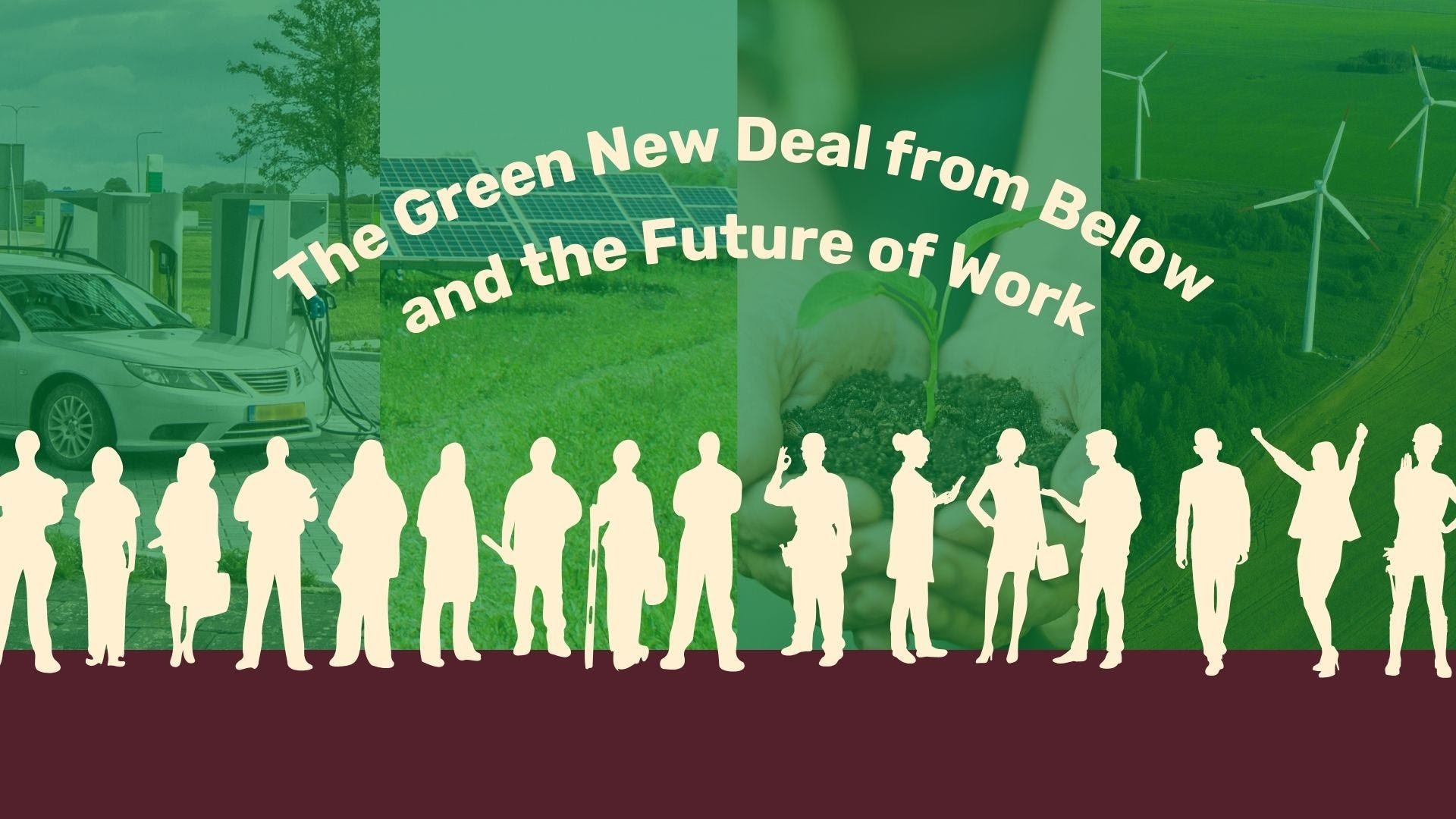
Making Green Jobs Be Good Jobs
Simply creating a larger number of jobs is not a solution to the problem that so many jobs are underpaid, insecure, dangerous, dead-end, and otherwise degraded. Many climate related jobs, for example installing solar panels, are often low-paid and insecure with abusive labor practices. The Green New Deal program has not only proposed to create millions of jobs, but to implement health and safety, antidiscrimination, and wage and hour standards as part of creating a green workforce.
Local Green New Deals, especially at the state level, have taken the problem of job quality head-on. In the course of these Commentaries we have seen many cases where coalitions, often led by unions, have successfully incorporated job protections and standards into Green New Deal and other climate protection legislation. For example:
- The Illinois Climate and Equitable Jobs Act requires prevailing wages for all non-residential projects. Utility-scale solar and wind projects must establish project labor agreements. State rebates for electric vehicle infrastructure depend on payment of prevailing wages.
- In 2019 Maine passed a Green New Deal Act which requires grid-scale power generation projects to employ people from an apprenticeship program. Legislation also required a project labor agreement on the state’s first offshore wind project.
- Connecticut legislation requires renewable energy developers to partner with approved in-state apprenticeship and pre-apprenticeship programs. It requires prevailing wage for non-residential utility-scale or grid-connected projects that are assisted by the state.
- New York State’s 2021 budget required prevailing wage and project labor agreements for construction on renewable-energy projects and labor peace agreements for operations and maintenance work.[1]
Making Green Jobs Be Union Jobs
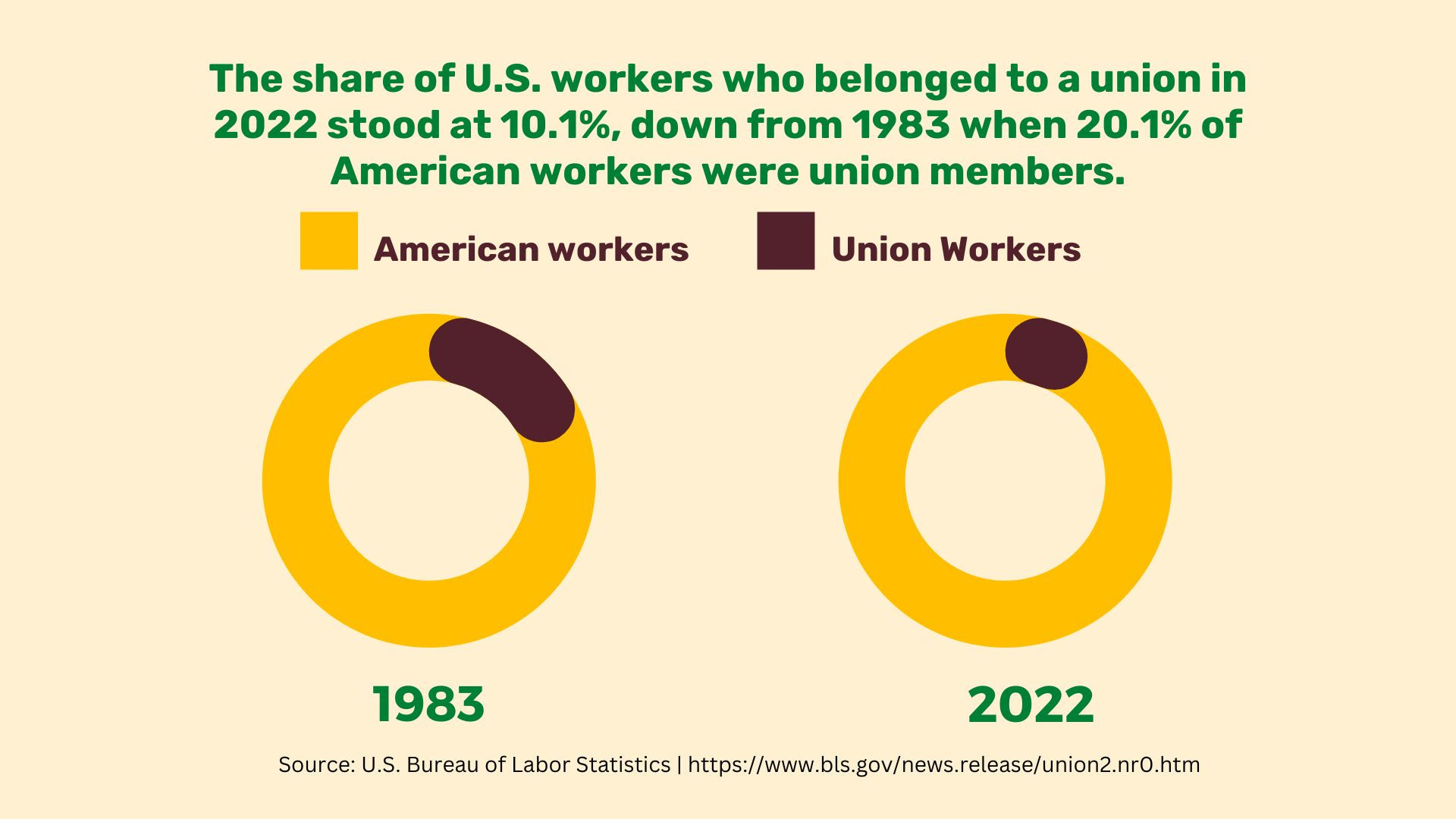
In 2022 the proportion of wage and salary workers who were members of unions was 10 percent – barely half the rate in 1983.[2] The weakening of organized labor has been a major cause of both the degradation of work and of growing inequality. The Green New Deal has identified the strengthening of the labor movement as a central means of reversing both job degradation and the broader pattern of economic inequality.
In his 2020 campaign Joe Biden promised to “ensure federal contracts only go to employers who sign neutrality agreements committing not to run anti-union campaigns.” This promise has never been fulfilled, and the Biden administration has provided massive contracts to Amazon and other notoriously anti-union corporations.
The ability of states and municipalities to require union recognition or even employer neutrality in union elections is severely limited by law. Nonetheless Green New Deal-type legislation and policy initiatives are making it easier for workers to organize. For example, the 2022 Fast Foods Accountability and Standards Recovery Act gave bargaining rights to California’s half-million fast food workers. It establishes a fast food council made up of workers, franchise owners, and franchising companies like McDonald’s which will negotiate employee wages, hours, and working conditions. And new legislation allows farmworkers – whose unionization efforts are often impeded by geographical dispersion and mobility – to vote to unionize by mail rather than just in person. These rights continue to be contested by employers.
Unions are encouraging a wide range of policies to make it easier for workers to organize. For example, IBEW local 569 has proposed that employers and other entities:
- procure power from union-generated sources
- employ unionized customer service representatives
- sign Project Labor Agreements on each Power Generation Project
- sign Project Labor Agreements on Energy Efficiency Projects
- agree in writing to neutrality in the event employees or subcontractor employees wish to unionize
Public policy can make a significant contribution to expanding workers’ rights and their ability to organize in “green” industries and elsewhere. For example, in 2023 after a three-year organizing struggle, workers who manufacture school buses for Blue Bird in Fort Valley GA voted to be represented by the Steelworkers union. Blue Bird is the second-largest bus manufacturer in the country. Steelworkers organizing director Maria Somma said, “It’s been a long time since a manufacturing site with 1,400 people has been organized, let alone organized in the South, let alone organized with predominantly African American workers, and let alone in the auto industry.” (Only 4.4 percent of workers in Georgia are represented by a union.)
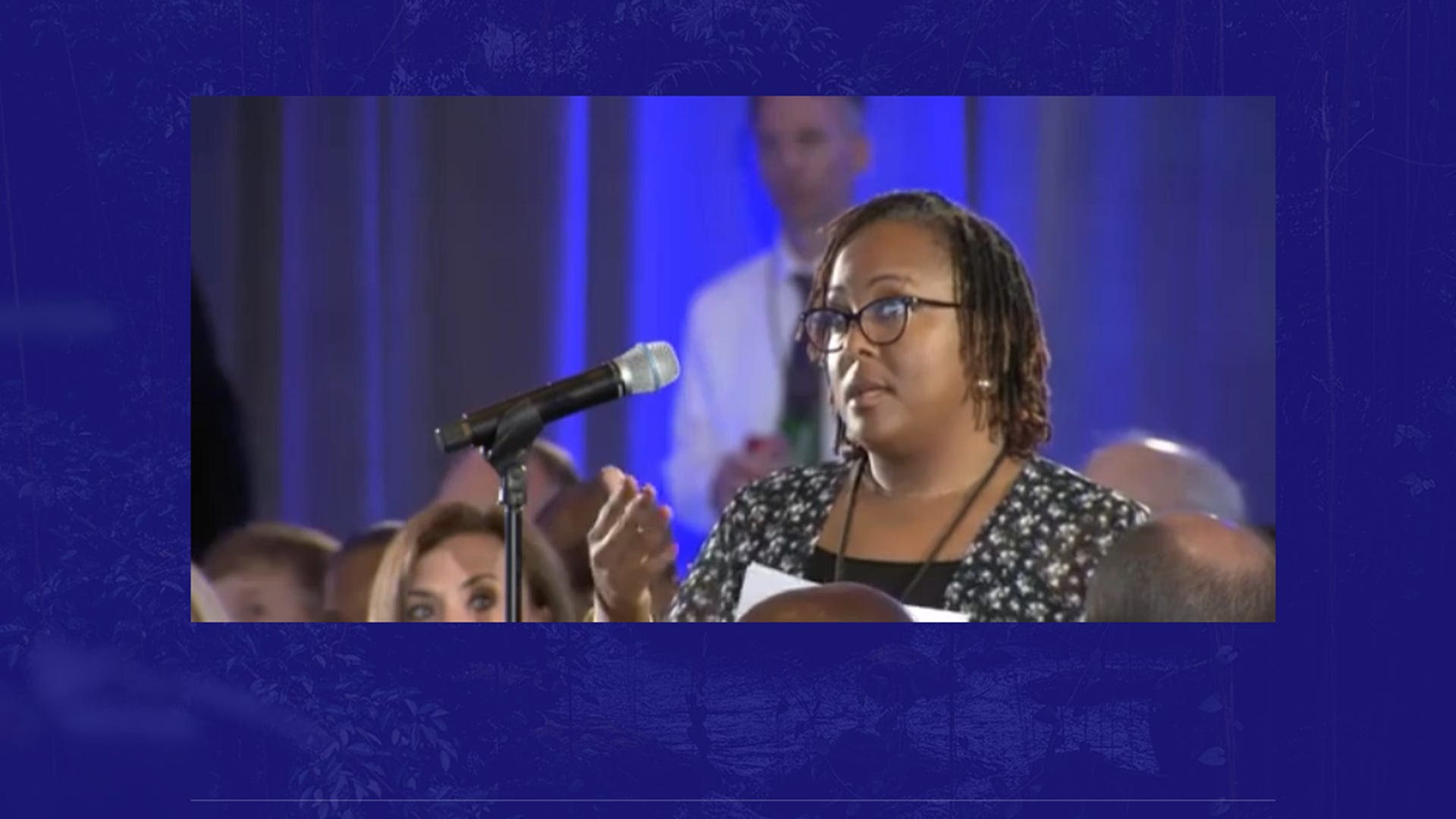
Brittney Linton at the Southern Company Shareholder Meeting At the shareholder meeting of mega-utility Southern Company on May 24, GWA member and renewable energy worker Brittney Linton raised concerns about workplace conditions on renewable energy projects built by contractors for Southern Company. New CEO Chris Womack committed to talk to their contractors–and we will hold them to this! Watch video >>
The federal Clean School Buses program, which subsidizes Blue Bird’s electric bus production, prohibits recipients from using funds to campaign against unions. Enforcement is weak, but the federal policy nonetheless has had a deterrent effect. According to Somma, “This is an employer that would have fired workers. This policy allowed us to calm the employer’s union-busting down.”[3]
Meanwhile, workers in the “green economy” are organizing themselves and becoming a force for building the Green New Deal from Below. The recently formed Green Workers Alliance is a worker organization made of current and aspiring renewable energy workers demanding more and better green jobs. It is currently focusing organizing the 100,000 workers on utility-scale solar and wind projects.
Matthew Mayers and Lauren Jacobs of the Green Workers Alliance explain its goals: “We need a strong, worker-led movement that supports the Green New Deal and a just transition to a renewable economy.” Their work addresses not only those currently employed in the green sector, but also the millions of jobless and underemployed workers who would benefit from such a program. The program must include “access to green jobs and paid training for everyone” with an emphasis on “reducing the huge income disparities between white workers and workers of color, especially Black workers.”[4]
The Green Workers Alliance has largely focused on clean energy workers in the South and Southeast because their working conditions are the worst in the country. Over the past year they have connected with hundreds of these workers in Facebook groups and during listening tours in Texas and Virginia. The Alliance has won back lost wages and supported workers being mistreated by temp agencies and other employers. In 2022 it launched a petition drive targeting utility companies Dominion, Duke, and AEP Renewables demanding that they move to 80% renewables by 2030.[5]
Ohio Green Worker Alliance activist Felicia Allen says,
We will fight for better wages, better job practices, and fight for the necessary training us renewable workers so desperately need to advance in our careers. We will help lower our carbon footprint for future generations. If we can’t lead the change the whole world needs, what message are we sending to our future generations? What will we be leaving them behind when we are gone? What will our legacies say about us if we won’t fight for the greater good of our families, and our planet? I believe if there ever was a time to unite and stand for something that affects all of us in some way, that time is now.[6]
Green Jobs for All – The Next Frontier?
A centerpiece of the original Green New Deal resolution is a “jobs guarantee,” ensuring jobs with a family-sustaining wage, adequate family and medical leave, paid vacations, and retirement security to all who want them. It envisions a federal program somewhat like the original New Deal’s Works Progress Administration (WPA) that would provide funds for non-profit organizations, local governments, and other agencies serving the public to employ anyone who wants a job. In addition to climate protection, workers in the jobs guarantee program could also provide for a wide range of needs that could help reduce injustice and create a better way of life for all. These range from education to housing to protection and care for the environment. The WPA produced schools, parks, post offices, and other amenities that we still celebrate; a climate jobs for all program could do the same today.[7]
A climate jobs guarantee would provide much of the labor power needed for an emergency mobilization to transition to a fossil free, climate safe economy, as well as to meet a wide range of other public purposes. In this it resembles the home front mobilization in World War II which provided millions of workers for the war effort. It would provide work experience and training that would allow its participants to move into higher skilled, higher wage jobs in the private and public sectors.
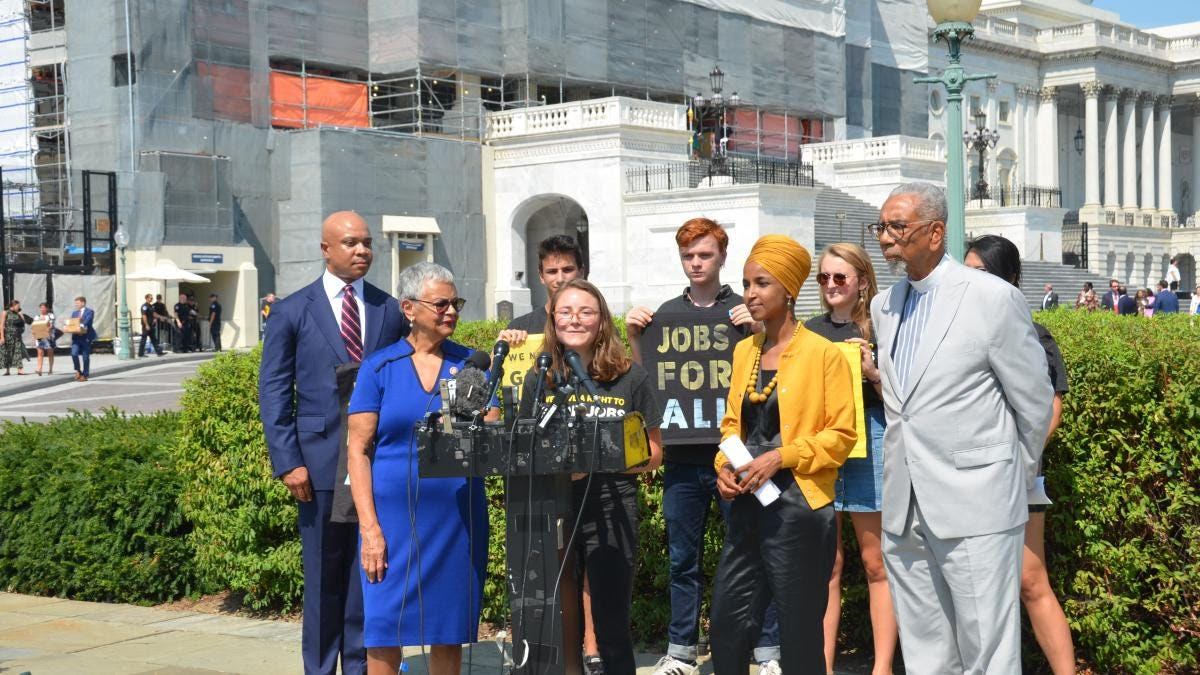
Sen. Booker, Reps. Watson Coleman and Omar Introduce Bicameral Bill to Create Federal Jobs Guarantee Program | Photo Credit: omar.house.gov
Senator Cory Booker introduced a Federal Jobs Guarantee Development Act which would guarantee that all adults in 15 high unemployment communities who want to work can have a job that pays a living wage and provides benefits like health insurance, paid sick leave, and paid family leave.[8]
Could a jobs guarantee program work at a local or state level? So far nobody seems to have tried. There are proposals to create them, however. As part of his 2022 campaign for mayor, Washington, DC City Councilmember Robert C. White, Jr. proposed a jobs guarantee to ensure that everyone who wants a job can have one. Some jobs would be created by the government, some by industry incentives, and others through government contracts.
White pitched the program as a means both to counter climate change and to address the city’s burgeoning crime rate. “This monumental program will drive down violence by giving people a real alternative to crime while addressing one of the most pressing issues of our time, which is climate change.”
For many people, the streets offer more opportunities than our government does. Violence occurs when people feel that engaging in crime has more benefits than the alternative of living within the bounds of the law. Given a choice between violence and a stable, good-paying job, most people will choose the job.
The program would produce up to 10,000 new city positions, a nearly 30% increase in the size of the city’s current workforce of 33,000. It would cost an estimated $1.5 billion a year, roughly equal to the city’s annual budget increases in recent years.[9]
White said,
Working in partnership with our labor unions, we could use apprenticeships to build skills and technical expertise. One example: crosswalk repainting jobs that would kick off apprenticeships that would lead to traffic engineer positions which focus on pedestrian and bicyclist safety. Another example is tree planting jobs that lead to apprenticeships for those interested in becoming arborists charged with managing and replacing trees. We could give community members professional training so they could effectively promote energy efficiency, protect our waterways, ensure food justice and remove environmental hazards. Other jobs could include clearing gutters, installing solar panels and green roofs, housing maintenance, rodent and mosquito abatement, weatherization, installing heat pumps, stormwater infrastructure, urban agriculture and removing lead pipes.
In April 2023 Philadelphia City Councilmember and mayoral candidate Helen Gym proposed to guarantee a job to every person 30 and under as part of a comprehensive plan to fight violence and crime.[10] Her proposal includes paid work for youth both in summer and through the school year. It would prioritize young people in the zip codes most impacted by gun violence with a goal of increasing youth employment 50% during the plan’s first summer.
The plan would expand Philadelphia’s pioneering PowerCorpsPHL program to provide a pathway to city employment, including work with land care programs to clear vacant lots that increase crime and to increase neighborhood greening as part of the city’s tree plan. It would partner with local businesses, institutions, and organizations and provide tax incentives and grants for hiring, training, and mentoring youth, and ensuring that these businesses and organizations receive technical support around youth mentoring, youth development, and trauma-informed professional supervision. It would partner with the Building Trades and initiate a pilot class of 100 young people completing pre-apprentice and apprentice programs with a guaranteed track to employment by leveraging resources from the Infrastructure Investment and Jobs Act.
While guaranteeing climate jobs for all who want them will surely require federal resources, local and state job guarantee programs may provide a future target for Green New Deals from Below. They could sharply reduce poverty and unemployment, help meet community needs, and create the workforce necessary to protect the climate.
A Vision for Jobs

Like many of its proposals, the Green New Deal’s jobs program combines concrete policies with a vision of social transformation. Job corps that would create a pipeline to good jobs for young people from impoverished and discriminated against communities could create new opportunities for those who have been excluded from them. A massive expansion of jobs to meet climate and social needs could create full employment and strengthen the bargaining power of workers. Elevated standards for wages, job security, health and safety, nondiscrimination, and rights on the job could provide a baseline level of decency and dignity in the workplace. Enforcing the right of workers to organize and engage in collective action on the job would shift the balance of power between workers and employers both in individual workplaces and in society as a whole. A program of jobs for all could eliminate the scourge of unemployment and create an economic sector where workers could dedicate their labor to the public good.
Such measures could also open a vision of a different future for young workers. Maria Brescia-Weiler is an organizer for the Young Workers Project of the Labor Network for Sustainability, which is conducting a Young Workers Listening Project. She says,
We always ask young workers how they ideally envision their life and work 20 years from now. This question is almost always met by a blank stare, or some kind of sigh or groan and a long pause. But after that long pause, they paint pictures of a beautiful future, where we all have more time off to care for our loved ones and grow sustainable local food, where union construction workers have made public buildings like schools and post offices into community resilience hubs run on green energy, where they have access to safe, clean and reliable public transportation but there’s so much affordable housing in their community that they can walk to work. And they truly believe this future is not only possible but absolutely necessary. The key word is always IF – IF we can create a just transition from fossil fuels, led by the workers and community members who are most impacted.[11]
Taken together, the initiatives of the Green New Deal from Below point the way not only to correcting the inequalities, injustices, oppressions, and abuses of the world of work, but also toward creating a more beautiful working world in the future.
[1] Climate Jobs New York, “Statement on New York’s Historic Renewable Energy Job Standards,” April 6, 2021. https://www.climatejobsny.org/in-the-news/2021/4/6/cjnys-statement-on-new-yorks-historic-renewable-energy-job-standards
[2] U.S. Bureau of Labor Statistics Economic News Release: Members Summary, January 19, 2023, https://www.bls.gov/news.release/union2.nr0.htm
[3] Luis Feliz Leon, “Union Win at Bus Factory Electrifies Georgia,” Labor Notes, May 16, 2023. “Union Win at Bus Factory Electrifies Georgia”
[4] Matthew Mayers and Lauren Jacobs, “Organizing for the Economy We Want,” The Forge, September 8, 2020. https://forgeorganizing.org/article/organizing-economy-we-want
[5] Lauren Kaori Gurley, “Shifting America to Solar Power Is a Grueling Low-Paid Job,” Vice, June 27, 2022.
https://www.vice.com/en/article/z34eyx/shifting-america-to-solar-power-is-a-grueling-low-paid-job
[6] Green Workers Alliance, New NWA Brochure. https://www.greenworkers.org/news
[7] For background on climate jobs guarantee programs see Jeremy Brecher, “Climate Jobs for All: Building Block for the Green New Deal,” Labor Network for Sustainability, December, 2018. https://www.labor4sustainability.org/wp-content/uploads/2018/11/LNSpdf_dec2018.pdf
[8] Cory Booker, “Sen, Booker, Reps. Watson Coleman and Omar Introduce Bicameral Bill to Create Federal Jobs Guarantee Program,” September 12, 2019. https://www.booker.senate.gov/news/press/sen-booker-reps-watson-coleman-and-omar-introduce-bicameral-bill-to-create-federal-jobs-guarantee-program Other proposals for a federal jobs guarantee have been introduced subsequently.
[9] Martin Austermuhle, “Robert White Pledges to Tackle Public Safety with Massive Green Jobs Program,” dcist/WAMU, April 22, 2022. https://dcist.com/story/22/04/22/robert-white-green-jobs-program/ and Robert C. White, Jr., “WHITE: My Jobs Guarantee Program Would Reduce Violent Crime and Foster Greater Hope,” Washington Informer, June 15, 2022. https://www.washingtoninformer.com/white-my-jobs-guarantee-program-would-reduce-violent-crime-and-foster-greater-hope/
[10] Helen Gym, “A Community Safety Plan to Restore the Village to Philadelphia,” https://helengym.com/safety/
[11] Maria Brescia-Weiler, “Young Workers Face the Climate Future,” Making a Living on a Living Planet, April, 2023. https://labor4sustainability.ourpowerbase.net/civicrm/mailing/view?reset=1&id=806

